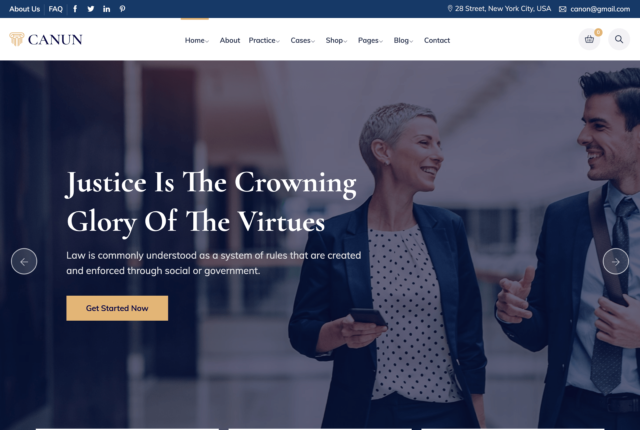Data is the key to understanding what works—and what doesn’t—when it comes to marketing. By using analytics, law firms can measure the effectiveness of their campaigns, identify opportunities for improvement, and ultimately attract more clients. However, the process of collecting, analyzing, and acting on data can be complex, making the expertise of a marketing agency invaluable.
This article explains how law firms can use analytics to refine their marketing efforts and highlights why partnering with a professional agency such as us is a better strategy for measuring these results.
Why Analytics Matter for Law Firms
Analytics provide actionable insights into how your marketing efforts are performing. By measuring website traffic, social media engagement, lead generation, and more, you can identify trends, optimize campaigns, and make data-driven decisions to improve your return on investment (ROI).
For example:
- Are visitors spending time on your website but not filling out contact forms?
- Are your social media posts generating likes but not clicks to your site?
Analytics can answer these questions, allowing you to refine your approach for better results.
Key Metrics to Track
1. Website Traffic
Tracking website traffic helps you understand how potential clients find your site and what they do once they’re there. Tools like Google Analytics provide insights into:
- Traffic Sources: Are visitors coming from search engines, social media, or direct links?
- Popular Pages: Which pages on your site attract the most attention?
- Bounce Rate: Are visitors leaving your site quickly without taking action?
Example: If a personal injury law firm sees a spike in traffic to a blog post about “What to Do After a Car Accident,” they might expand their content strategy around related topics to capture even more interest.
2. Leads and Conversions
Measuring leads and conversions shows how many visitors take meaningful actions, such as filling out contact forms or scheduling consultations.
Metrics to Monitor:
- Form Submissions: Track how many visitors fill out your contact forms.
- Click-to-Call Actions: Measure clicks on your phone number from mobile users.
- Conversion Rate: Calculate the percentage of visitors who become leads.
Example: A family law firm notices that only 2% of visitors to their “Child Custody Services” page fill out the consultation form. They might A/B test different headlines or call-to-action buttons to improve this rate.
3. Impressions and Engagement on Social Media
Social media analytics help you gauge how your audience is interacting with your content. Metrics include:
- Impressions: The number of times your content is shown to users.
- Engagement Rate: The ratio of likes, shares, and comments to impressions.
- Click-Through Rate (CTR): How many users click on links in your posts.
Example: An immigration attorney might notice high engagement on posts about recent visa policy changes. By creating more posts around trending topics, they can increase their reach and attract more followers.
4. SEO Performance
SEO analytics measure how well your website ranks on search engines for relevant keywords. Key metrics include:
- Keyword Rankings: Which keywords drive traffic to your site?
- Organic Traffic: How many visitors arrive through search engines?
- Backlinks: Are other sites linking to your content?
Example: A corporate law firm might track rankings for “business contract attorney in Los Angeles” and adjust their content strategy if they drop in search results.
Practical Steps to Use Analytics Effectively
- Set Clear Goals
Define what you want to achieve with your marketing efforts. For example:- Increase website traffic by 20% in six months.
- Generate 50 new leads per month.
- Improve your social media engagement rate by 10%.
- Use the Right Tools
Invest in analytics tools such as:- Google Analytics: For website performance.
- HubSpot: For tracking leads and conversions.
- Social Media Platforms: Built-in analytics tools for platforms like LinkedIn and Facebook.
- Analyze Regularly
Review your data weekly or monthly to spot trends and adjust your strategy accordingly. Create dashboards that provide an at-a-glance overview of your metrics. - Optimize Continuously
Use insights to make data-driven adjustments to your website, ads, and social media campaigns. For example:- Update low-performing blog posts with fresh content and keywords.
- Experiment with different ad creatives or audience targeting.
Why Work With a Marketing Agency such as us for this?
While tracking and analyzing data is essential, it can be overwhelming for attorneys who are already busy managing cases. Partnering with a marketing agency that specializes in law firms ensures your analytics are being utilized to their full potential.
Benefits of Working with an Agency:
- Expertise: At Potenture, we have the tools and knowledge to extract actionable insights from your data.
- Time Savings: Free up your time to focus on your clients while experts handle your marketing strategy because we include this in our marketing packages.
- Customized Strategies: Agencies can design campaigns tailored to your niche, such as family law, criminal defense, or corporate law.
- Proven Results: Agencies often have case studies and proven methodologies that demonstrate what works for law firms.
Example: A criminal defense attorney partnered with an agency to refine their Google Ads strategy. By analyzing click-through rates and ad performance, the agency helped reduce costs per click and doubled the number of inquiries within three months.
Our Final Thoughts: Turning Data Into Results
Analytics is the cornerstone of successful law firm marketing. By tracking metrics such as website traffic, leads, and social media engagement, you can refine your efforts and maximize your ROI. However, unlocking the full potential of analytics often requires specialized expertise.
Partnering with a marketing agency ensures your data works for you, helping your firm attract more clients, build trust, and grow your practice. Start using analytics today to take your marketing to the next level.








